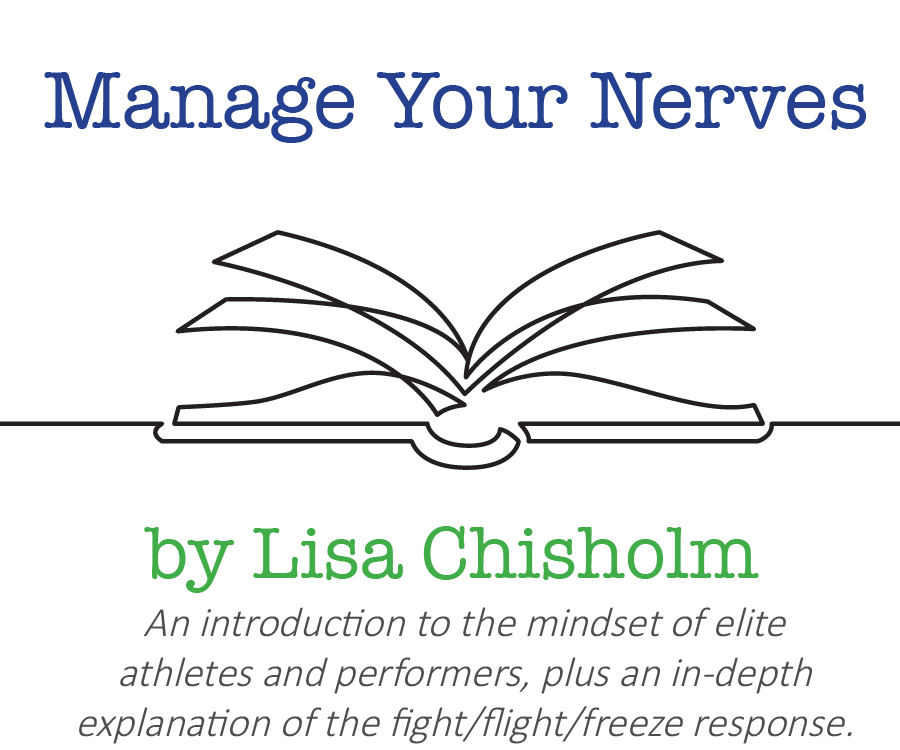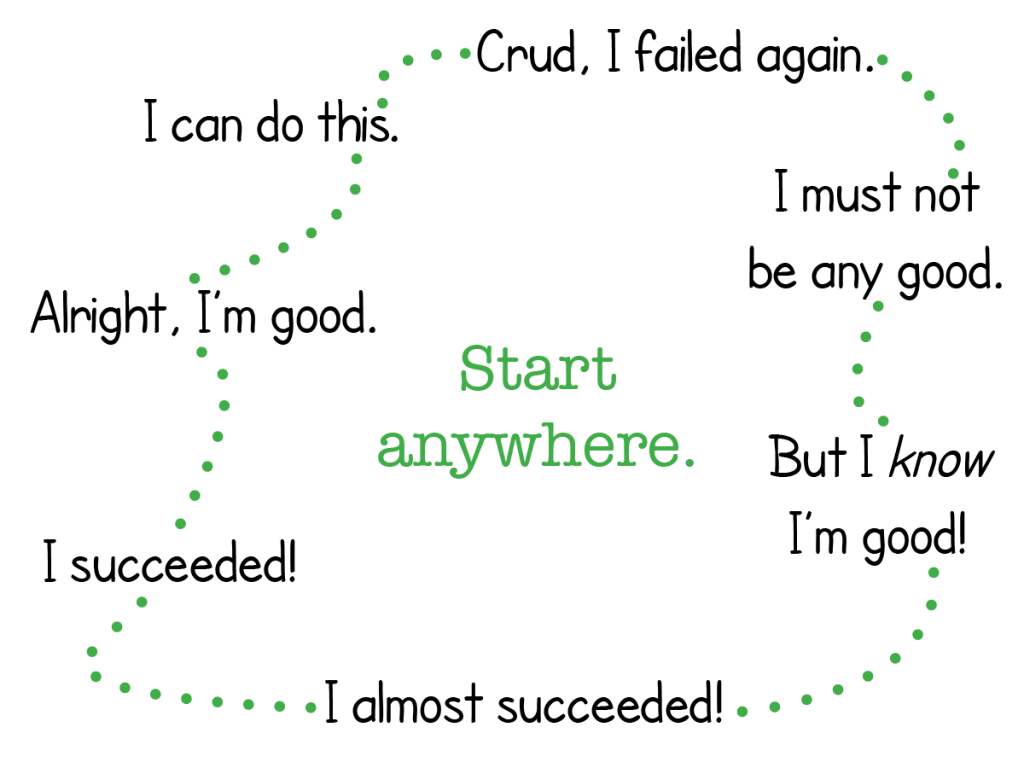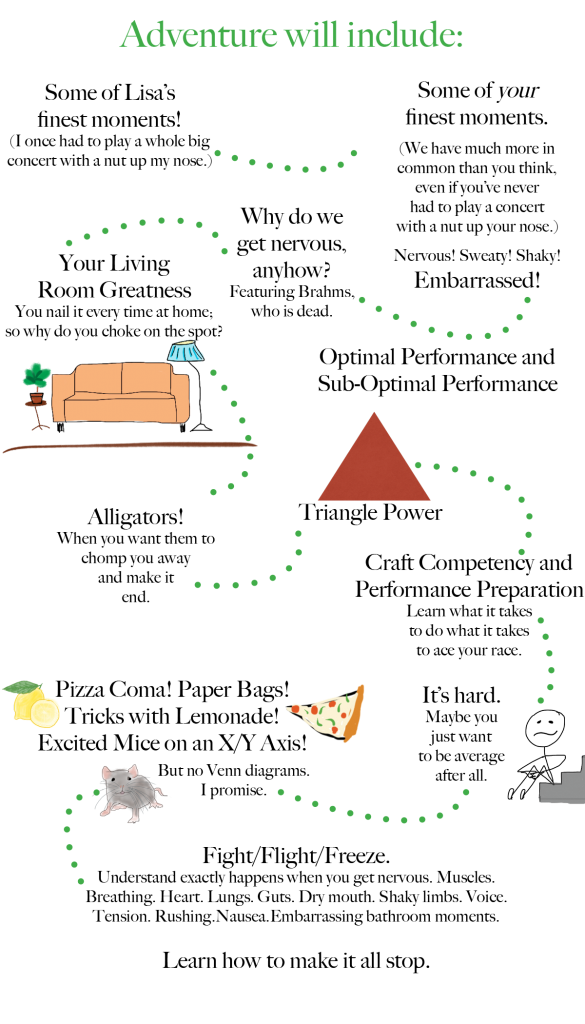
Welcome to a sneak preview of my book, due out soon.
Read on for the welcoming excerpt.
Sign up here to receive advance excerpts.
For more than 20 years, I have earned a living by wiggling my fingers and blowing into an expensive wooden stick with lots of metal keys and a complicated reed. Yes, a bassoon. And if you’re not sure what that is, just hang on a bit until Chapter 1, and I’ll draw you a picture.
As a professional musician who has trained at some of the finest institutions and competed on the world’s stage in the form of orchestral auditions in Canada, the USA, Europe, and the UK, you might assume that I know how to be calm under pressure.
While it’s true that I’m pretty good at handling pressure now, I wasn’t always. In fact, it took me a decade of really thinking about it and studying it to figure out how to manage the stress of performance. Could be that I’m slower than average. Could also be that I am perfectly normal! Did you know, actually, that 98% of professional orchestral musicians get nervous?
At the peak of my audition career, I was routinely making it to the final or semi-final rounds of auditions with some fine and fancy orchestras (New York Philharmonic, Cleveland Orchestra) and sometimes playing weeks-long trials for plum positions (Royal Opera Covent Garden, Royal Philharmonic, Houston Symphony, Toronto Symphony). I could almost taste the glory. On the other hand, I was routinely not getting the job that I wanted and had worked so hard for. Heck, I was sometimes not even making it past the first competitive round, ending up instead in the trash heap of demoralized players dismissed after a first hearing. Your six minutes are up, and poof! There goes months of preparation and hundreds—sometimes thousands—of dollars of travel costs. The list of those orchestras is way too long to print.
Why was I sometimes sailing and other times flailing? I was prepared on my craft—and had years of diligent practice behind me to prove it!
Turns out, my craft was not the problem. What I was not prepared on was my peak performance mindset. In fact, I hadn’t even realized that there was such thing as a peak performance mindset. I had always thought that either you were good at what you do or bad at what you do, and if you were good at what you do, you’d succeed. The flip side of this of course is that if you were failing, it meant you weren’t that good after all. Even though I knew deep inside that I was good at what I did, I always seemed to be bad at it when it mattered—and that translated to a lot of conflicting and negative circular thought patterns. What a head-spin this was.

Does this feeling sound familiar? You know that you’re good, but you find yourself failing repeatedly, so you think that maybe you’re no good after all, yet deep down you know that you are good… and so the doubt and puzzlement cycles on.
Now that I am a coach to professionals in the performing arts and in business, I see this familiar cycle all the time in other people, too. Most people I encounter are experts in their fields, but have little or no training on the physical and mental elements of what it takes to deliver their excellence in a high-stakes situation. This is why they often under-deliver in those really key moments. I can now recognize that in this same way, I was an expert with my musical preparation but had absolutely no training on how to prepare my mind and body to deliver myself consistently. No wonder I was failing myself.
I truly knew nothing about how to deal with the physical and mental manifestations of feeling pressure in high-stakes moments. The only thing that all musicians seemed to know about or agree upon was, “eat bananas.” (More on bananas later). I did, however, know that professional athletes had extensive mental skills training to help them towards peak performance, so I went in search of some of that to see whether it could help me.
I went back to school when nobody was looking. Between gigs, I took 2 years of full-time formal study focused on psychology, counselling, and a bit of physiology. I took such delight in everything I learned—every subject I studied seemed to have relevance to my experiences as a performer. I quickly realized there was a curriculum to be created that I wished I had been able to access when I was a student, and which I thought the whole world should have for their own self-betterment. So I set off to create it—or at least a version of it. And now I’ve decided to share it with you here.
The psychology of learning and memory helped me to understand how I could prepare my music more efficiently. Social psychology material helped me to understand how self-confidence and self-esteem can be rattled in high-stakes situations, how group dynamics can affect our confidence in the moment, and how we can sabotage ourselves with our thoughts and behaviour, even while we think we are pursuing excellence. It also helped me to understand that group decision-making is fraught with social cognitive biases, and that these oft-fraught teams of decision-makers are the ones making decisions that affect our life and career trajectories.
Sport and performance psychology material helped me to understand the pursuit of consistency and excellence in performance, focus and flow, motivation, competition, co-operation, and the all-important task of controlling the controllables (such as my craft, or my mental and physical preparedness) and learning to accept the uncontrollables (such as how good the competitors are, how crabby the decision-makers are that day, or whether Mercury is in retrograde on competition day).
Studying physiology helped me to understand the bizarre functions and malfunctions of our bodies, and it helped me to create a set of strategies to mitigate the physical effects of my own Fight/Flight/Freeze. This, by the way, is the most immediately useful stuff, and will comprise much of this book.
Finally, the counselling training helped me to tie all of this marvelous empirical learning together into something really useable and shareable. I gained a better understanding of how to manage negative self-chatter, how to foster intrinsic motivation, how to get to the root of the sources of negative self-judgment, and how to build a preparation and performance plan for myself that allowed me to get out of my own way and put my best foot (or finger!) forward.
In the end, I created a program that helps people to prepare for high-stakes performances and interactions. Amazingly, it worked! Although it certainly took some trial and error, I learned how to get the upper hand over myself in my auditions. Ultimately, I won the audition that I most wanted to win—a position in the orchestra of the Canadian Opera Company. Today, I blow into my wooden stick and wiggle my fingers in the opera pit while famous singers scream high drama in fancy wigs and cakey makeup right above my head. Occasionally, stray flower petals, fake dollar bills, and imitation snow find their way from the stage down into the pit, landing on my music stand at curtain time. It’s quite a nice life, really. It is my hope that what got me here can help you to get where you want to go, too.
I did not initially set out to create a curriculum on the mindset of optimal performance, or to expand my learning into a coaching career. My first motivation was purely to improve my own performance. I wanted to get to the academic root of the sport and performance psychology material without someone else’s lens filtering it for me. I wanted to get past the consumer-grade literature—all those maddening Venn diagrams!—and understand the psychological mechanisms of peak performance and under-performance. I wanted to understand what Olympic winners understood. I wanted to figure out what tools and methods would work for me, exactly when and where I needed them. I wanted to improve my own consistency in performances and win the orchestral job of my dreams. I managed to do that, and now I want to share with you some of what I have learned along the way.
What follows in this book is an introduction to and overview of mental and physical preparation and performance skills, and an exploration into understanding and managing the physical manifestations of freakage-outage. Our adventure over the next 300 pages will include:

Before you embark upon this adventure with me, I want to be clear with you about what my background is, and what it isn’t. Although I have formally studied psychology and counselling, I am not a licensed psychologist or counsellor. I am a performing artist and a coach to performing artists and career professionals. I hold certificates in Psychology (Ryerson University), Advanced Counselling (George Brown College), and Organizational Behaviour (Harvard University, Extension School). By the time this book makes it into your hands, I’ll also hold a Master’s in Industrial Organizational Psychology (Harvard Extension School). [Though at the time of editing this book, I am secretly drawing out my last course for as long as the administration will let me, because of the phenomenal library privileges. Truth.]
I offer you my experiences, learnings, observations, and approaches to understanding and tackling the physiology and psychology of sub-optimal performance. In plain-speak, that means I am just an orchestral bassoonist who was tired of underperforming and learned a few things along the way, and I’m offering you what I learned about how and why our minds and bodies fail us when we’re nervous, in case it might help—or at least amuse—you. I’m telling you where I failed, what I learned, and what helped me to succeed. You get to take the bits that work for you. Race your own race, be your own self, and follow what feels right to you. Even if that sounds bananas. (More on bananas later).
If at any point you feel like your anxieties are greater than this book can help you with, please consult a qualified counsellor. If any point you think I have no idea what I am talking about, just stop reading and give the book away to one of those free roadside libraries. And if at any point you think I’m brilliant, hooray! (My dad thinks I am brilliant).
Meanwhile, may my own failures inspire your successes. Now, read on, so you can get out there and get out of your own way.
I hope you enjoyed this introduction to Manage Your Nerves. The book should be out soon. If you would like to receive a notice when it’s ready, please sign up here!

